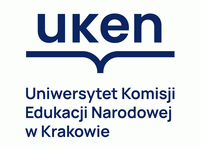Animal
Animals are multicellular eukaryotic organisms that form the biological kingdom Animalia. With few exceptions, animals consume organic material, breathe oxygen, are able to move, reproduce sexually, and grow from a hollow sphere of cells, the blastula, during embryonic development. Over 1.5 million living animal species have been described—of which around 1 million are insects—but it has been estimated there are over 7 million animal species in total. Animals range in length from 8.5 millionths of a metre to 33.6 metres (110 ft) and have complex interactions with each other and their environments, forming intricate food webs. The study of animals is called zoology.
Biology
Biology is the natural science that involves the study of life and living organisms, including their physical structure, chemical composition, function, development and evolution. Modern biology is a vast field, composed of many branches. Despite the broad scope and the complexity of the science, there are certain unifying concepts that consolidate it into a single, coherent field. Biology recognizes the cell as the basic unit of life, genes as the basic unit of heredity, and evolution as the engine that propels the creation of new species. Living organisms are open systems that survive by transforming energy and decreasing their local entropy to maintain a stable and vital condition defined as homeostasis. See glossary of biology.
Psychology
Psychology is the science of behavior and mind, including conscious and unconscious phenomena, as well as feeling and thought. It is an academic discipline of immense scope and diverse interests that, when taken together, seek an understanding of the emergent properties of brains, and all the variety of epiphenomena they manifest. As a social science it aims to understand individuals and groups by establishing general principles and researching specific cases.
Biology
What is found in biology is mechanisms, mechanisms built with chemical components and that are often modified by other, later, mechanisms added to the earlier ones. While Occam's razor is a useful tool in the physical sciences, it can be a very dangerous implement in biology.
Francis Crick (1988) What Mad Pursuit
Biology
Biology is not physics, because organisms are such complex physical objects, and sociology is not biology because human societies are made by self-conscious organisms. By pretending to a kind of knowledge that it cannot achieve, social science can only engender the scorn of natural scientists and the cynicism of the humanists.
Richard Lewontin (1995) "Sex, Lies, and Social Science" in New York Review of Books (4/20/95)
Psychology
One of the symptoms of an approaching nervous breakdown is the belief that one’s work is terribly important.
Bertrand Russell in: The Conquest of Happiness, Routledge, 12 October 2012, p. 48


